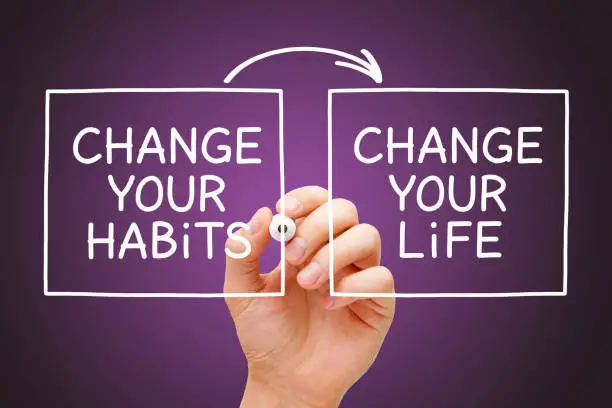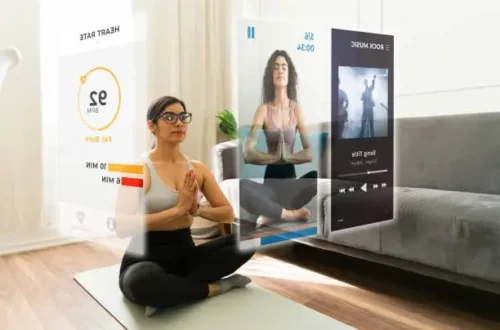1. What Is the 21-Day Habit Challenge?
Understanding Habit Formation
We are what we repeatedly do. Habits are the building blocks of our lives—whether you’re aware of them or not. From brushing your teeth in the morning to reaching for your phone before bed, your life runs on autopilot more than you think.
Why 21 Days? The Psychology Behind It
You’ve probably heard this popular idea that it takes 21 days to form a habit. This concept originates from Dr. Maxwell Maltz, a plastic surgeon who noticed it took around three weeks for patients to adjust to changes. Over time, this number became a cultural standard, even though newer studies suggest it might take more time. Still, 21 days is a great jumpstart—a manageable window to kick things off.
2. How Habits Shape Our Lives
The Power of Daily Routines
Small, consistent actions can lead to massive results. That 10-minute workout, the daily journal, or drinking more water each morning—they accumulate over time and shift your identity.
Breaking Bad vs. Building Good Habits
Getting rid of bad habits isn’t just about stopping something—it’s about replacing it with something better. If you stop scrolling TikTok before bed, try replacing it with 10 minutes of reading.
3. The Science Behind Habit Creation
The Habit Loop: Cue, Routine, Reward
Charles Duhigg’s book The Power of Habit breaks it down simply:
- Cue: What triggers the habit.
- Routine: The behavior itself.
- Reward: What your brain gets from it.
Master this loop, and you can master any habit.
Neuroplasticity and Brain Rewiring
Your brain is like plastic—it can rewire itself. The more you perform an action, the stronger the neural pathway becomes. That’s why consistency beats intensity.
4. Benefits of a 21-Day Habit Challenge
Increased Discipline and Focus
Doing something every day—even when you don’t feel like it—builds grit. You train your mind to follow through.
Improved Mental and Physical Health
Whether it’s daily meditation, walking, or gratitude journaling, positive habits promote overall wellness. You’ll feel more energetic and less stressed.
5. Choosing the Right Habit to Build
Start Small, Think Big
Don’t try to run 5 miles if you haven’t jogged in years. Start with a walk. Small wins build momentum.
Aligning Habits with Life Goals
Ask yourself: What do I want most in life? Then reverse-engineer a habit that supports that goal.
6. Planning Your 21-Day Challenge
Tools You’ll Need
You don’t need much—just a notebook, a calendar, maybe a habit tracker app like Habitica or Streaks. Simplicity wins.
Time Management and Scheduling
Pick a time and stick to it every day. Make it non-negotiable—like brushing your teeth.
7. Setting SMART Goals
Specific, Measurable, Achievable
Instead of saying “I’ll eat healthier,” say “I’ll eat a fruit for breakfast every day.”
Relevant and Time-bound Tactics
Make sure your goal matters to you and fits within the 21-day window. That urgency breeds action.
8. Keeping Track of Your Progress
Journals, Apps, and Trackers
Use tools like Notion, bullet journals, or a simple paper tracker. Checking a box daily gives a dopamine hit of achievement.
Celebrating Small Wins
Don’t wait for the finish line to feel proud. Celebrate each week with a reward or a shoutout to yourself.
9. Staying Motivated Throughout
Dealing with Slumps and Setbacks
You’ll mess up. That’s okay. Progress isn’t linear. What matters is getting back up.
Motivational Tools and Resources
Read motivational blogs like James Clear or watch videos from Mel Robbins or Tony Robbins. Fuel your mind.
10. Accountability: Your Secret Weapon
Get a Habit Buddy
Share your challenge with a friend. Daily check-ins = powerful pressure.
Join Online Habit Communities
Reddit’s r/GetDisciplined and Facebook habit groups are full of support, stories, and ideas.
11. Common Challenges and How to Overcome Them
Procrastination and Distractions
Put your phone on airplane mode. Set a timer. Use the Pomodoro technique to stay focused.
Fear of Failure and Perfectionism
Perfection is the enemy of progress. Aim for 80% consistency. That’s more than enough to win.
12. Habit Stacking for Efficiency
Pairing Old Habits with New Ones
Want to start meditating? Do it right after brushing your teeth. This trick is from BJ Fogg’s Tiny Habits method.
Morning and Evening Routines
Bookend your day with empowering actions—start strong and wind down right.
13. Real-Life Success Stories
Entrepreneurs and Creators Who Transformed Their Lives
Tim Ferriss swears by daily journaling. Oprah meditates every day. Their habits create their results.
Everyday People Making Big Changes
Tons of Redditors and YouTubers have shared how 21-day challenges helped them lose weight, quit sugar, or write daily. Ordinary people, extraordinary results.
14. When 21 Days Isn’t Enough
The Myth vs. Reality Debate
Truth: 21 days is just the start. Research from University College London shows it can take 66 days on average to lock in a habit.
Extending Challenges for Long-Term Results
Consider a 90-day challenge or keep repeating 21-day cycles. Stack them like legos.
15. Your Life After the 21-Day Challenge
Turning a Habit into a Lifestyle
You’ve proven you can do it. Now, make it who you are. Not a task—but an identity.
Staying Consistent Beyond the Challenge
Keep using your tools. Revisit your “why.” Remind yourself: you’re in this for the long haul.
Conclusion
The 21-Day Habit Challenge isn’t just about checking boxes—it’s about transforming your mindset and your life. With clarity, consistency, and courage, you can build habits that align with your best self. So, why wait? Choose your habit, mark the date, and start your 21-day journey today. Future You will thank you.
FAQs
1. Can I build multiple habits during the 21-Day Challenge?
Start with one. Once it’s stable, you can add more. Focus is key.
2. What if I miss a day?
No worries! Just get back on track the next day. Missing once isn’t failure—quitting is.
3. Are there apps to help me with the challenge?
Yes! Try Habitica, Streaks, or Done.
4. Can kids or teens try the 21-Day Habit Challenge?
Absolutely! Start with fun, simple habits like making the bed or journaling for 5 minutes.
5. What’s the most life-changing habit to start with?
Depends on you. But top contenders? Daily exercise, reading, meditation, or gratitude journaling.





